Providing additional services can mean shoppers make a beeline straight for you – and spend more while they’re there. Aidan Fortune looks at the options
Convenience retailing isn't what it used to be. Today's successful business owners know that it goes far beyond keeping shoppers stocked up with grocery essentials and so also offer modern consumers the chance to access their cash, top up their phones and even pay their bills.
But does a customer paying his bills in store help retailers to pay theirs? Payment terminals such as PayPoint are somewhat controversial because of very low commission rates on the most common transactions and rising charges for banking the cash at the bank, so they need to generate good footfall and extra sales to earn their place.
According to research consultancy HIM's Convenience Tracking Programme, customers making utility bill payments visit c-stores more frequently than other shoppers (4.4 times compared with 3.7 times) and spend more per trip (£6.68 vs £5.31 on top of the bill payment). The CTP also shows that sales across all categories increase by 10% if a store offers bill payment services.
PayPoint retail strategy director Mike Igoe sees another benefit from commercial services, too. "These services help to encourage customer loyalty, particularly in areas where competition is becoming more intense," he says.
Igoe adds that additional PayPoint products such as SIM cards can provide a fresh income stream.
Saqib Ghafoor of Nisa in Gateshead, Tyne & Wear, offers a range of in-store services including National Lottery, printing of calling cards, PayPoint and an ATM. He says that retailers must provide these types of services if they want to thrive in the current market. However, he advises those considering branching out to do their research first to make sure they are certain that the services they would like to offer are worth the effort involved. "Every service that I provide justifies its place in the store," says Saqib. "There's no point in offering something that doesn't generate much footfall or lead to more sales.
Saqib says one good decision has been to install a cash machine. "Even though the ATM is outside, it encourages people to come inside and spend money in the store," he says. "It's free to use so people come here specifically rather than use one you have to pay for."
ATM operator Cashzone business development director Tim Halford believes that having an ATM on site can increase basket spend by between 8 and 15%. "It's a huge increase on the spend of an ordinary customer," he says. "Our research has also shown that a customer who uses a cash machine will spend up to 25% of what they withdraw in that store."
For those held back by the fear they don't have the space, Ron Delnevo, managing director of ATM operator Bank Machine, has these words: "A few square feet is all that is required little more than a box of crisps."
Halford says there are several options when it comes to ATMs. "A merchant replenished machine allows cash to be recycled in the store without the need for expensive banking charges," he says. "It also prevents large amounts of cash being left in the till as this money can be used in the machine."
For an even easier solution, there is the fully managed option. This means the provider is responsible for maintenance, money handling and communication. Halford says: "With a fully managed machine, it means the retailer doesn't have to put in any time to see increased footfall."
Delnevo says that the different options require different levels of commitment from a retailer. "If the retailer fills the ATM then technical and security training is required," he explains.
So if you want to increase footfall and boost basket spend, maybe it's time to look beyond bread and beans and give consumers extra reasons to hot foot it your way.
Convenience retailing isn't what it used to be. Today's successful business owners know that it goes far beyond keeping shoppers stocked up with grocery essentials and so also offer modern consumers the chance to access their cash, top up their phones and even pay their bills.
But does a customer paying his bills in store help retailers to pay theirs? Payment terminals such as PayPoint are somewhat controversial because of very low commission rates on the most common transactions and rising charges for banking the cash at the bank, so they need to generate good footfall and extra sales to earn their place.
Commercial break
After a year of deliberation, the National Lottery Commission last month turned down Camelot's application to add commercial services to its offer on the grounds that it will breach EU and competition laws.
Camelot's bid was provisionally turned down six months ago, but it believed that it had a strong enough case to persevere. Camelot managing director Paul Charmatz admits to being "bewildered" by the latest ruling and has vowed to fight on.
Retailers were eagerly following this chain of events as they felt that a new commercial services provider would bring some diversity to the market and offer competition to the current providers. Many were therefore disappointed this would now not happen.
Saqib Ghafoor of Nisa in Gateshead, Tyne & Wear, had hoped Camelot would have been granted entry into the market as he believed it would have provided more choice for customers, as well as retailers. "I would have liked to keep my PayPoint terminal aswell, as I think there is enough room for both in the commercial services market to thrive," he says.
"It would have opened up the market for the services we provide to customers and the commissions that retailers earn. Commercial services seems to be the only sector in the retail industry with a monopoly involved, so unfortunately we have to go along with whatever PayPoint says."
Dennis Williams of Broadway Premier in Edinburgh says that commissions provided by PayPoint are not worth the work that has to be put in by the retailer. "PayPoint's rallying cry is footfall but that doesn't always equate to more sales," he says. "The commissions we're offered by them certainly don't cover the time we spend at the till and banking charges."After a year of deliberation, the National Lottery Commission last month turned down Camelot's application to add commercial services to its offer on the grounds that it will breach EU and competition laws.
Camelot's bid was provisionally turned down six months ago, but it believed that it had a strong enough case to persevere. Camelot managing director Paul Charmatz admits to being "bewildered" by the latest ruling and has vowed to fight on.
Retailers were eagerly following this chain of events as they felt that a new commercial services provider would bring some diversity to the market and offer competition to the current providers. Many were therefore disappointed this would now not happen.
Saqib Ghafoor of Nisa in Gateshead, Tyne & Wear, had hoped Camelot would have been granted entry into the market as he believed it would have provided more choice for customers, as well as retailers. "I would have liked to keep my PayPoint terminal aswell, as I think there is enough room for both in the commercial services market to thrive," he says.
"It would have opened up the market for the services we provide to customers and the commissions that retailers earn. Commercial services seems to be the only sector in the retail industry with a monopoly involved, so unfortunately we have to go along with whatever PayPoint says."
According to research consultancy HIM's Convenience Tracking Programme, customers making utility bill payments visit c-stores more frequently than other shoppers (4.4 times compared with 3.7 times) and spend more per trip (£6.68 vs £5.31 on top of the bill payment). The CTP also shows that sales across all categories increase by 10% if a store offers bill payment services.
PayPoint retail strategy director Mike Igoe sees another benefit from commercial services, too. "These services help to encourage customer loyalty, particularly in areas where competition is becoming more intense," he says.
Igoe adds that additional PayPoint products such as SIM cards can provide a fresh income stream.
Saqib Ghafoor of Nisa in Gateshead, Tyne & Wear, offers a range of in-store services including National Lottery, printing of calling cards, PayPoint and an ATM. He says that retailers must provide these types of services if they want to thrive in the current market. However, he advises those considering branching out to do their research first to make sure they are certain that the services they would like to offer are worth the effort involved. "Every service that I provide justifies its place in the store," says Saqib. "There's no point in offering something that doesn't generate much footfall or lead to more sales.
Saqib says one good decision has been to install a cash machine. "Even though the ATM is outside, it encourages people to come inside and spend money in the store," he says. "It's free to use so people come here specifically rather than use one you have to pay for."
ATM operator Cashzone business development director Tim Halford believes that having an ATM on site can increase basket spend by between 8 and 15%. "It's a huge increase on the spend of an ordinary customer," he says. "Our research has also shown that a customer who uses a cash machine will spend up to 25% of what they withdraw in that store."
For those held back by the fear they don't have the space, Ron Delnevo, managing director of ATM operator Bank Machine, has these words: "A few square feet is all that is required little more than a box of crisps."
Halford says there are several options when it comes to ATMs. "A merchant replenished machine allows cash to be recycled in the store without the need for expensive banking charges," he says. "It also prevents large amounts of cash being left in the till as this money can be used in the machine."
For an even easier solution, there is the fully managed option. This means the provider is responsible for maintenance, money handling and communication. Halford says: "With a fully managed machine, it means the retailer doesn't have to put in any time to see increased footfall."
Delnevo says that the different options require different levels of commitment from a retailer. "If the retailer fills the ATM then technical and security training is required," he explains.
So if you want to increase footfall and boost basket spend, maybe it's time to look beyond bread and beans and give consumers extra reasons to hot foot it your way.




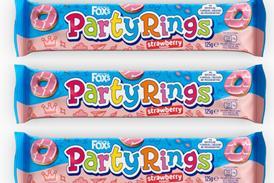
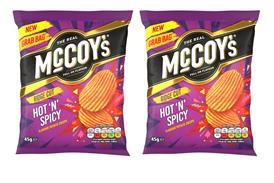
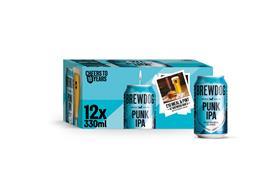
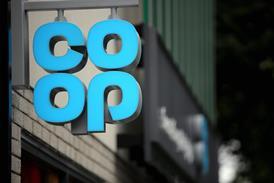

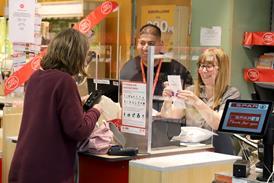

![WG-4003[58]](https://d2dyh47stel7w4.cloudfront.net/Pictures/274x183/4/5/1/353451_wg400358_6083.jpg)








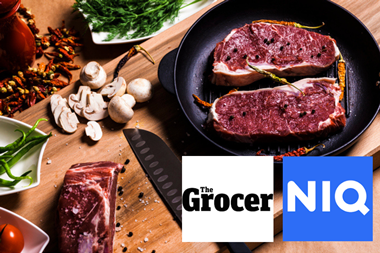





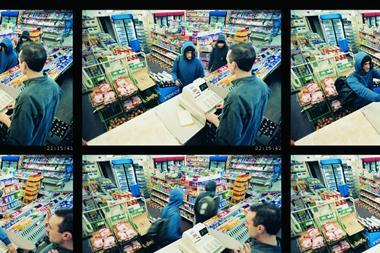
No comments yet